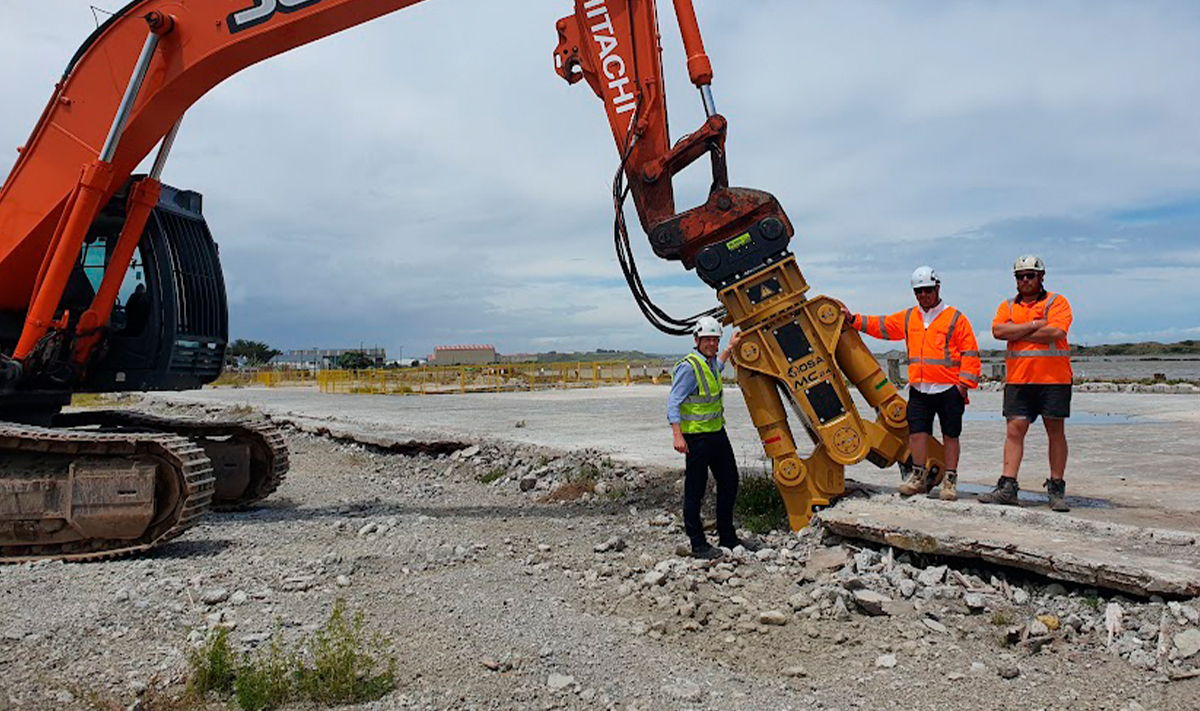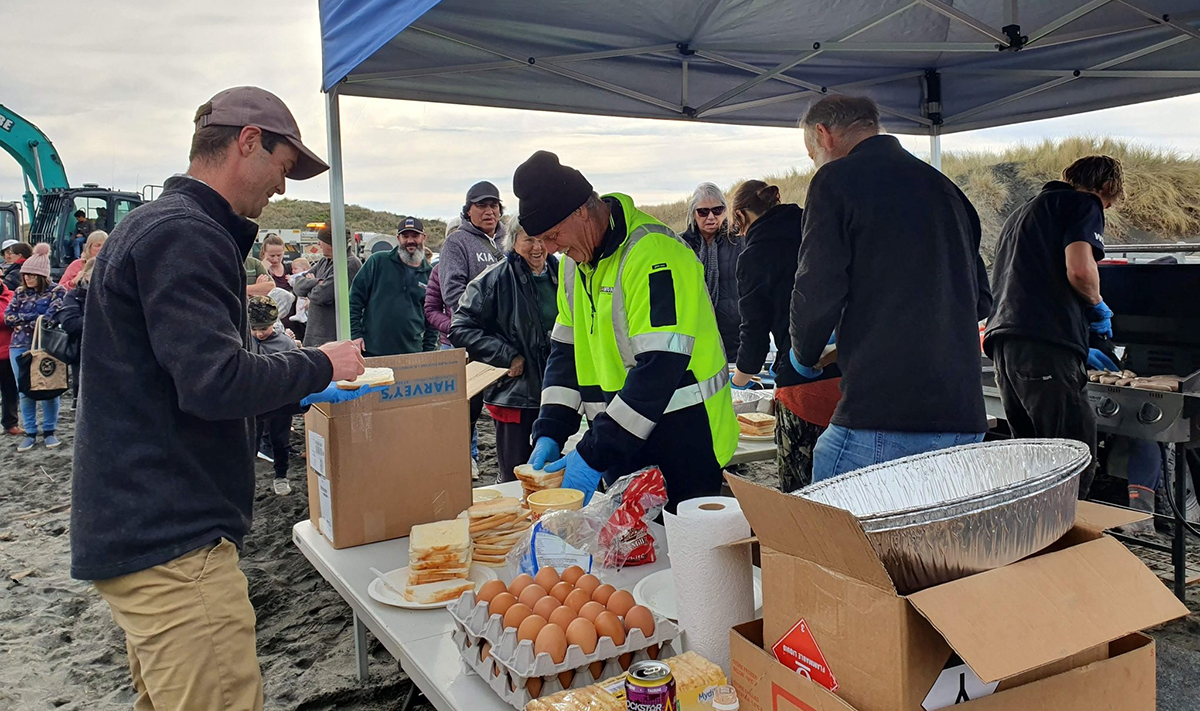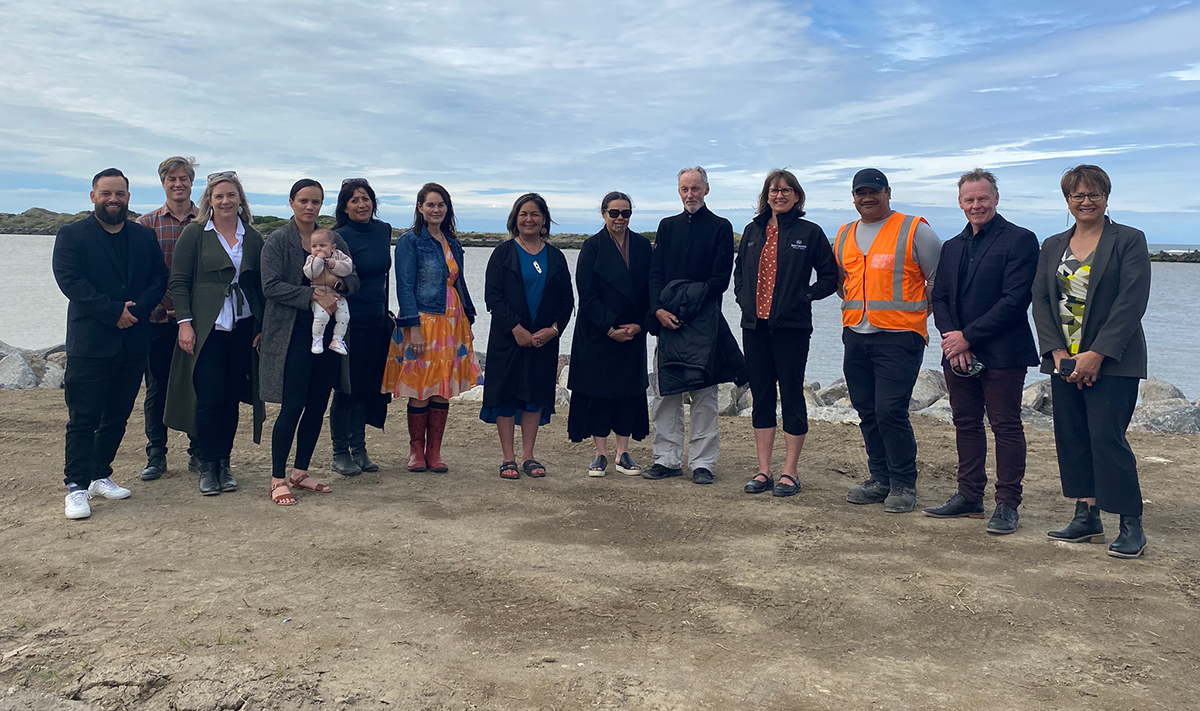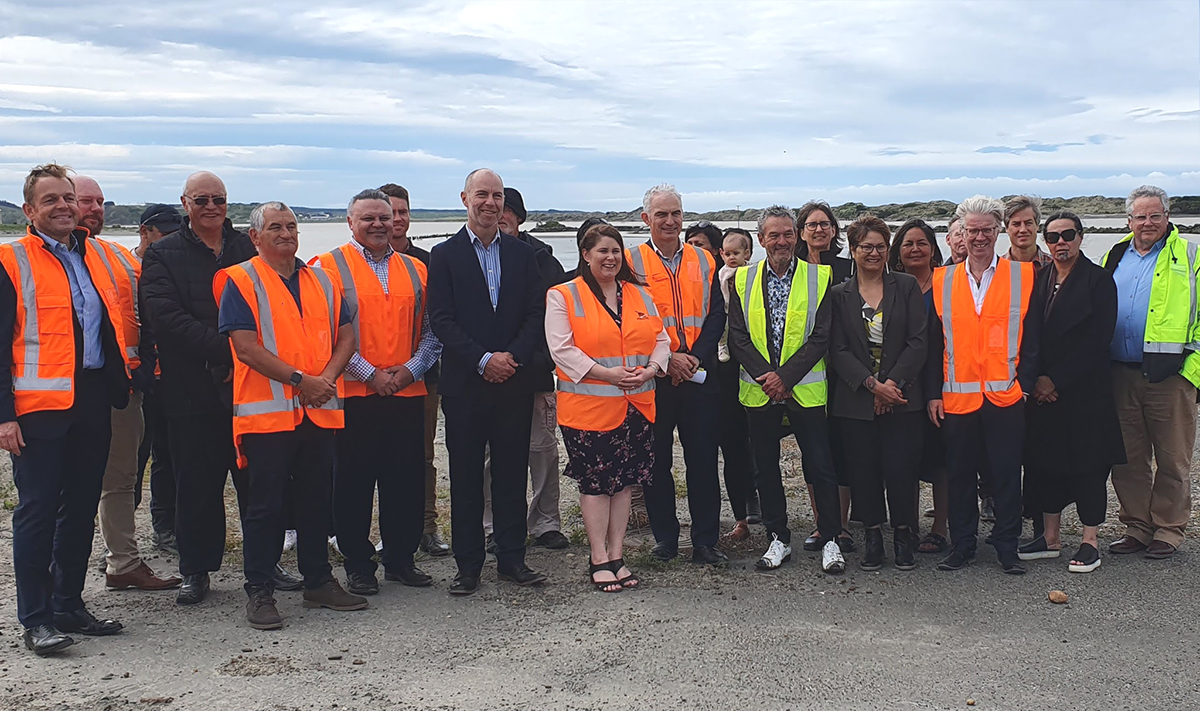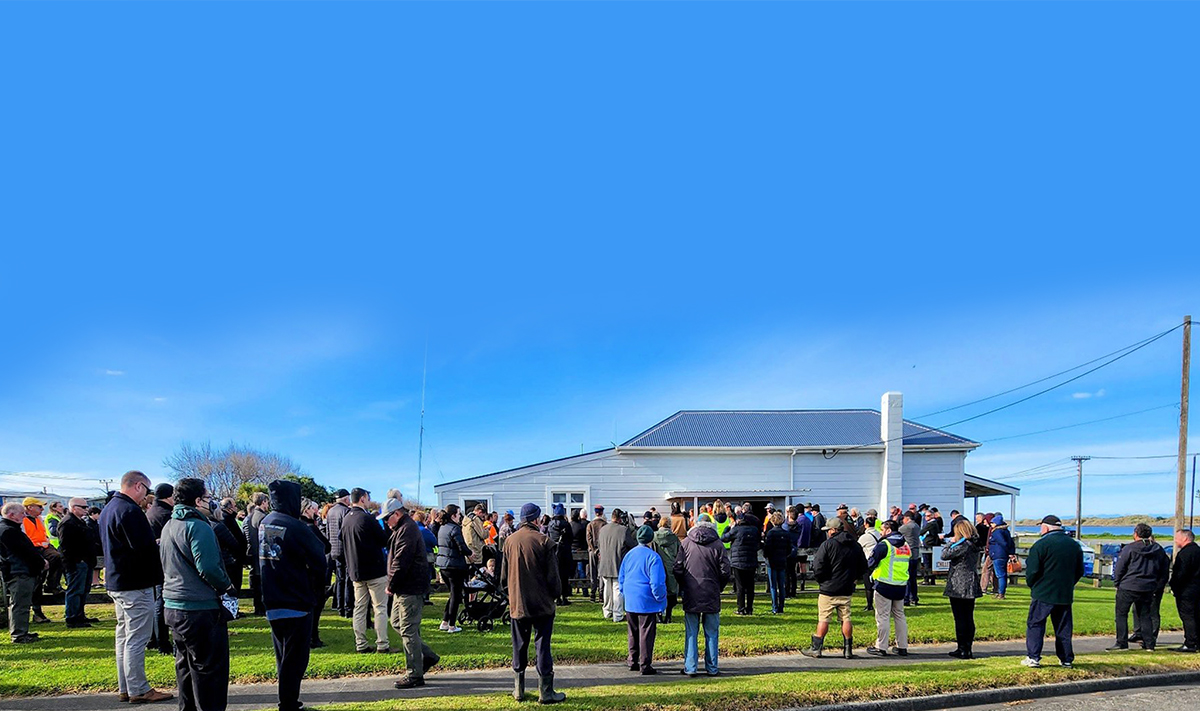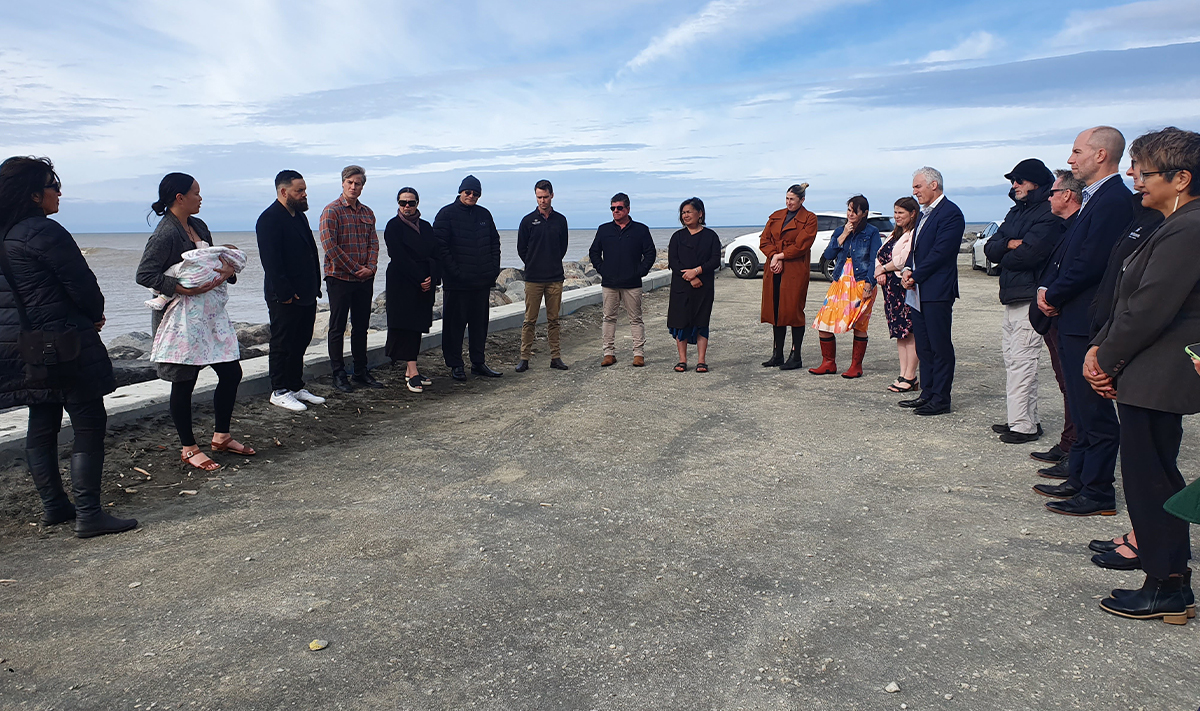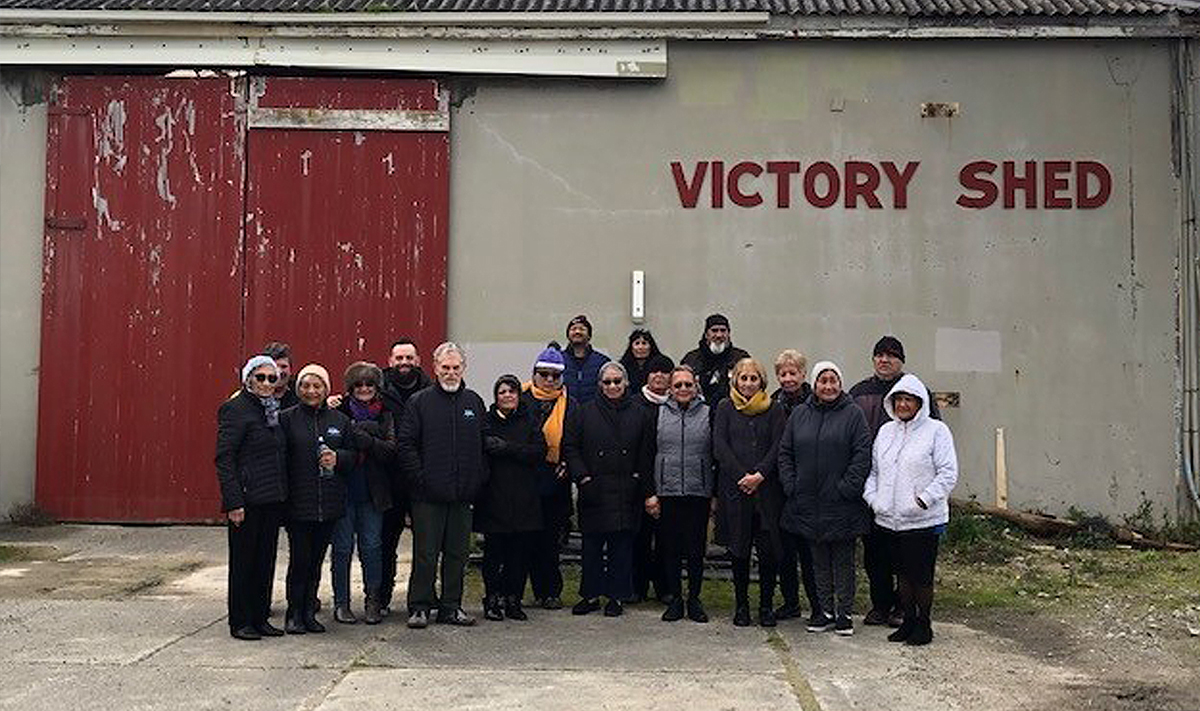Te Pūwaha
Te Pūwaha is a collaborative effort, under the guidance of hapū and iwi (as led by Te Mata Pūau) and upheld by project partners; Whanganui District Council, Whanganui Port, Horizons Regional Council, Q-West Boat Builders, and the Whanganui District Employment Training Trust (Port Employment Precinct) to create Mouri Awa (abundance for the river), Mouri Ora (abundance for the wider eco-system) and Mouri Tangata (abundance for whanau, hapū, iwi and the wider Whanganui community).
Te Pūwaha is also the first major insfrastructure project conducted in line with Tupua te Kawa, the innate value set of Te Awa Tupua. The values embedded in Tupua te Kawa can broadly be described as:
- the metaphysical and indivisible nature of the Whanganui River
- the intrinsic and inalienable place of hapū and iwi as the River
- community empowerment via collective obligation to work collaboratively for the River’s benefit.
The total investment in Te Pūwaha is over $87.35 million, including a $31.8 million government investment managed by Kānoa Regional Development & Commercial Services.
Te Pūwaha will:
- enable the local building and maintenance of world class vessels
- retain and create high-value jobs in the marine, engineering and coastal freight sector
- create a platform for unlocking further investment in the Port and Whanganui
- secure a modern marine precinct and community asset for the next 50 years
- create specialist port-related training through the Port Employment Precinct.
In October 2022, Te Pūwaha was acknowledged with the top prize in the Best Practice Collaboration category at the Economic Development NZ Awards.
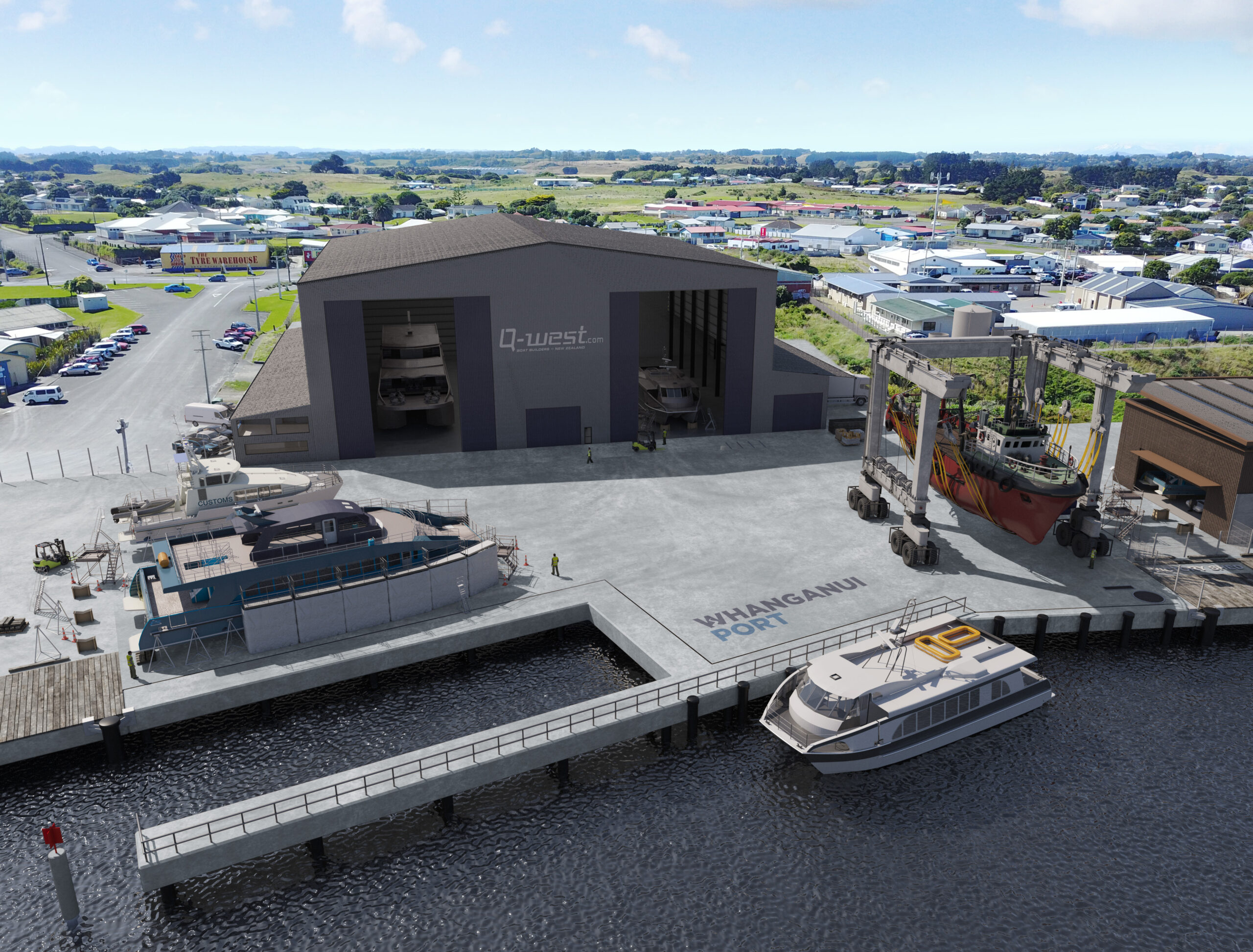
Community Resources
To date, the total investment in Te Pūwaha is over $87.35 million, including a $31.8 million government investment managed by Kānoa Regional Development & Commercial Services.
| Sub-Project | Training Structures | Port Infrastructure | Boat Building Business | Port Employment Precinct |
| Funded Parties | Horizons | WDC | Q-West | WDETT / PEP |
| Total Funding | $16.4M | $49.3M | $16.0M | $1.5M |
| PGF Funding | $7.5M | $12.5M | $5.25M | $1.5M |
| Deliverables | North Mole, South Mole, Tanae Groyne | Lifting Infrastructure, Heavy Pavement, Wharf 2, 3 | Boat Building Shed, Boat Hoist | Increased Employment |
| Investment Type | Grant | Loan (Equity) | Loan | Grant |
Whanganui Port infrastructure project
The historic wharves that comprise Whanganui Port are neglected and urgently need restoration. Without this work, the existing port operations would be limited to Wharf 1 as is currently the case.
Whanganui Port’s infrastructure project under Te Pūwaha includes:
- Upgrading 450m of wharves.
- Development of marine infrastructure.
- Provision of a hardstand and runway suitable for Q-West’s mobile boat hoist with a 380-tonne lift capacity to enable boats to be lifted in and out of the water.
- Improving dredging capabilities to secure the long term safe use of the wharves and public slipway.
Te Mata Pūau
The implementation of Te Awa Tupua legislation is a critical characteristic at Te Pūwaha and our way of operating in all activities at the Port. The value set under which Te Pūwaha operates under are based in the Te Awa Tupua Act and Te Pūwaha is the first real opportunity for ensuring that a large-scale undertaking is delivered in a way that meets the needs of the community under the Act.
Te Mata Pūau has been established for the purpose of Te Pūwaha and is made up of hapū at place. The Port seeks guidance and approval from Te Mata Pūau to ensure Te Awa Tupua and Tupua Te Kawa are upheld. Te Mata Pūau lead us to understanding the Te Awa Tupua status and the application of Tupua te Kawa towards the health and wellbeing of the Whanganui River in its entirety.
The members of Te Mata Pūau are:
- Chris Shenton – Ngāti Tumango me Ngāti Tupoho
- Naani Waitai – Ngāti Tamareheroto
- Gavin Brooks – Ngāti Pamoana
- Kahurangi Simon – Nga Paerangi
- Jenny Tamakehu – Ngā Poutama
Horizons infrastructure works
The Horizons Regional Council portion of the project will ensure river channel alignment is maintained to protect Whanganui’s critical infrastructure (including the port, three waters and flood protection assets) from erosion and sea encroachment. This certainty of river alignment is a critical component to the wider Te Pūwaha project, as it will protect and enable the Whanganui Port to develop and operate by defining the river mouth and ensuring a navigable depth is maintained for vessels.
Horizons components of the project are:
- Strengthening of the North Mole and revetment;
- Reinstatement of the Tanae Groyne (~50m in length);
- Upgrade of erosion control structures along the South Spit;
- He Ara Tuku Rau;
- Strengthening of the South Mole; and
- Repair to the interface wall at the base of the South Mole.
Port Employment Precinct
Te Ara Mahi funding as managed by Kānoa – Regional Economic Development and Investment Unit, has enabled the Whanganui District Employment Training Trust to establish a Port Employment Precinct to facilitate training development and job opportunities with the port revitalisation project. The Port Employment Precinct connects our community with training and jobs at the port and supports businesses looking to train or find skilled staff.
Q-West Boat Builders
A revamp for Q-West Boat Builders will establish a purpose built facility and mobile boat hoist with a 380-tonne lift capacity for new builds, repairs, and maintenance services within the Port, while employing 30 staff and creating an estimated 80 additional jobs with neighbouring businesses.
Recovered timber at the Whanganui Port
As project partners progress through construction on site at the Whanganui Port, our contractors are collecting timber to be reused and recycled. We have outlined a process and protocols around how this timber can be distributed in accordance with the project outcomes.

